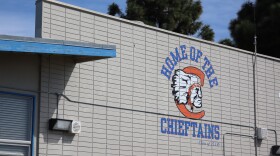About 25 years ago, acclaimed cellist Yo-Yo Ma was playing in Salt Lake City when a high school student asked him if his cello, which dates back to the 1700s, had a name. It did not, but Ma made the student a deal: He'd play a piece of music for her, and if she could think of a name for his instrument, maybe he'd keep it.
"And so I played a piece of music, [and] she said, 'Petunia,' " he recalls. "And the name has stuck."
A child prodigy, Ma began learning Bach's famed Cello Suites when he was just 4 years old. He's recorded the Suites three times — once in his 20s, once in his 40s and again in his 60s. He likens each performance or recording to the flow of a river — always changing.
"You always call it the same river, but the water's never the same," he says. "In a world where we can measure everything — or we think we can measure everything — how wonderful it is that you could have ... poetry or music that actually makes you think you are touching infinity."
Over the course of his career, Ma's played for nine American presidents and been awarded 19 Grammys and the Presidential Medal of Freedom. Most recently, he played at the memorial for the seven aid workers from World Central Kitchen who were killed in Gaza last month.
Ma loves music, but he remembers reading a passage in a book by Spanish cellist Pablo Casals that stayed with him: "[Casals] said in this book that I am a human being first, I'm a musician second, and I'm a cellist third," Ma says. "Coming from my background and reading this from my hero, I thought, that man I like. … [That's] the right order for me."
Hear the full Fresh Air interview, in which Ma plays Petunia, at the audio link above.
Therese Madden and Susan Nyakundi produced and edited this interview for broadcast. Bridget Bentz, Molly Seavy-Nesper and Zach Thompson adapted it for the web.
Copyright 2024 NPR







